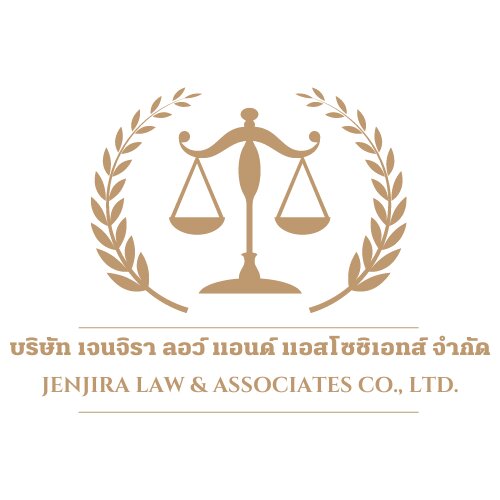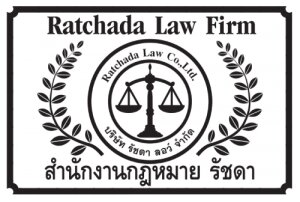Best Tax Lawyers in Bang Kapi
Share your needs with us, get contacted by law firms.
Free. Takes 2 min.
List of the best lawyers in Bang Kapi, Thailand
Thailand Tax Legal Questions answered by Lawyers
Browse our 4 legal questions about Tax in Thailand and read the lawyer answers, or ask your own questions for free.
- I am Swiss National received Social Securety from the USA year 2024 make arround 750.000Bath year . I single , leave in Rented Apartment 13 Years the moment.
- My Question is need to pay Tax on my Yearly Income Retirement Salary of 750000 Bath? Leave in a rented Apartment moment 13 years. i divorced for the past 25 years and am Single in Thailand Bangkok. have no other Income in my Savings Account, and I am living on... Read more →
-
Lawyer answer by Afe Babalola & Co. (Emmanuel Chambers)
If you are receiving U.S. Social Security benefits while living abroad, here are key points to consider regarding taxes and residency: - U.S. Taxes – As a U.S. income recipient, you may still owe U.S. taxes on your Social Security...
Read full answer - Retired living on social security income in Chiang mai
- Sir, I looked onto the tax chart where my income is at, 20%. I have a retirement OA visa that cannot earn any income while in Thailand. All my sources of income comes from SSI and a small annuity. I wire transfer money into a USD account and then do... Read more →
-
Lawyer answer by AD Legal Firm
Orders Nos. Por. 161 and Por. 162 of the Revenue Department, issued under Section 41, Paragraph 2 of the Revenue Code, stipulate that individuals required to pay tax based on overseas income are defined as follows: An individual who earns...
Read full answer - about the new tax law for foreigners
- I only have to pay taxes on the money I transfer to Thailand. How do I have to prove how much money I transfer? If I transfer let's say 1.000.000 Baht a year, how much do I have to pay for taxes if I paid already 130.000 Baht taxes in... Read more →
-
Lawyer answer by Lexiam Law
Only the income received overseas and/or in Thailand is subject to personal income tax. Transferred money is not subject to it but you have to declare the source and the purpose of transfer for it being able to be transferred...
Read full answer
Thailand Tax Legal Articles
Browse our 5 legal articles about Tax in Thailand written by expert lawyers.
- The Penalties Of Not Filing Your Income Tax Return As A Foreigner In Thailand
- Thailand has strict tax regulations that apply to both residents and non-residents. In recent years, the Thai Revenue Department has updated its policies on how both foreign and locally sourced income are taxed.For foreigners earning income from either of these sources, understanding these requirements has become more important than ever.... Read more →
- Legal Implications of Remote Work in Thailand
- Remote work, often referred to as telecommuting, has emerged as a dominant trend reshaping global employment landscapes. For Thailand, a country known for its digital nomad appeal and vibrant expat community, the rise of remote work brings unique legal, cultural, and operational considerations. Our comprehensive guide here explores the legal... Read more →
- Thai Legal Framework for Cryptocurrencies
- Technology, investment, and money have all been fundamentally altered by cryptocurrencies. Countries all throughout the globe struggle to design legal regimes that safeguard consumers while fostering innovation as these digital assets develop. Thailand distinguishes itself in this sense as it has one of the most thorough regulatory frameworks regarding cryptocurrencies... Read more →
About Tax Law in Bang Kapi, Thailand:
Tax law in Bang Kapi, Thailand, is governed by the Revenue Department of the Ministry of Finance. It regulates the collection of taxes from individuals and businesses in the area. Understanding tax laws is essential to ensure compliance and avoid legal issues.
Why You May Need a Lawyer:
You may need a lawyer for tax-related issues such as tax disputes, audits, filing taxes for a business, inheritance tax planning, or international tax matters. A lawyer can provide legal advice, represent you in court, negotiate with tax authorities, and help you understand complex tax laws.
Local Laws Overview:
Key aspects of tax laws in Bang Kapi, Thailand, include income tax, value-added tax (VAT), corporate tax, property tax, and withholding tax. Understanding these laws and their implications is crucial for individuals and businesses operating in the area.
Frequently Asked Questions:
1. How are taxes calculated in Bang Kapi, Thailand?
Taxes are calculated based on the type and amount of income or transaction. Income tax rates vary depending on your income level, while VAT is calculated as a percentage of the value of goods or services.
2. How can I reduce my tax liability in Bang Kapi, Thailand?
You can reduce your tax liability by taking advantage of deductions, exemptions, and tax incentives provided by the government. Consulting with a tax lawyer can help you identify legal ways to minimize your taxes.
3. What are the penalties for tax evasion in Bang Kapi, Thailand?
Penalties for tax evasion in Bang Kapi, Thailand, include fines, imprisonment, and seizure of assets. It is essential to comply with tax laws to avoid facing legal consequences.
4. How can a tax lawyer help me with tax audits?
A tax lawyer can represent you during tax audits, review your financial records, negotiate with tax authorities, and ensure that the audit process is conducted fairly and in accordance with the law.
5. Are there any tax incentives for businesses in Bang Kapi, Thailand?
Yes, the government offers various tax incentives to promote investment and economic growth in Bang Kapi, Thailand. A tax lawyer can help you understand and take advantage of these incentives.
6. Do I need to pay property tax in Bang Kapi, Thailand?
Yes, property owners in Bang Kapi, Thailand, are required to pay property tax annually. The tax rate is based on the assessed value of the property.
7. How can I plan for inheritance tax in Bang Kapi, Thailand?
You can plan for inheritance tax by creating a will, establishing trusts, and taking advantage of tax exemptions. Consulting with a tax lawyer can help you develop an effective inheritance tax plan.
8. What are the requirements for filing corporate tax in Bang Kapi, Thailand?
Businesses in Bang Kapi, Thailand, are required to file corporate tax returns annually. The tax rate is based on the company's net profit. A tax lawyer can assist you with corporate tax compliance.
9. Can I appeal a tax assessment in Bang Kapi, Thailand?
Yes, you can appeal a tax assessment if you believe it is incorrect or unfair. A tax lawyer can help you prepare and submit an appeal to the relevant tax authorities.
10. How can I address international tax issues in Bang Kapi, Thailand?
International tax issues can be complex, involving tax treaties, transfer pricing, and foreign income reporting. A tax lawyer with expertise in international tax law can help you navigate these matters and ensure compliance with relevant regulations.
Additional Resources:
For more information on tax laws and regulations in Bang Kapi, Thailand, you can visit the website of the Revenue Department of the Ministry of Finance. You can also seek assistance from the Thai Bar Association or the Thai Accounting Association for professional advice.
Next Steps:
If you require legal assistance with tax matters in Bang Kapi, Thailand, consider contacting a reputable tax lawyer in the area. A lawyer can provide guidance on your specific situation, help you navigate complex tax laws, and ensure compliance with legal requirements.
Lawzana helps you find the best lawyers and law firms in Bang Kapi through a curated and pre-screened list of qualified legal professionals. Our platform offers rankings and detailed profiles of attorneys and law firms, allowing you to compare based on practice areas, including Tax, experience, and client feedback.
Each profile includes a description of the firm's areas of practice, client reviews, team members and partners, year of establishment, spoken languages, office locations, contact information, social media presence, and any published articles or resources. Most firms on our platform speak English and are experienced in both local and international legal matters.
Get a quote from top-rated law firms in Bang Kapi, Thailand — quickly, securely, and without unnecessary hassle.
Disclaimer:
The information provided on this page is for general informational purposes only and does not constitute legal advice. While we strive to ensure the accuracy and relevance of the content, legal information may change over time, and interpretations of the law can vary. You should always consult with a qualified legal professional for advice specific to your situation.
We disclaim all liability for actions taken or not taken based on the content of this page. If you believe any information is incorrect or outdated, please contact us, and we will review and update it where appropriate.










